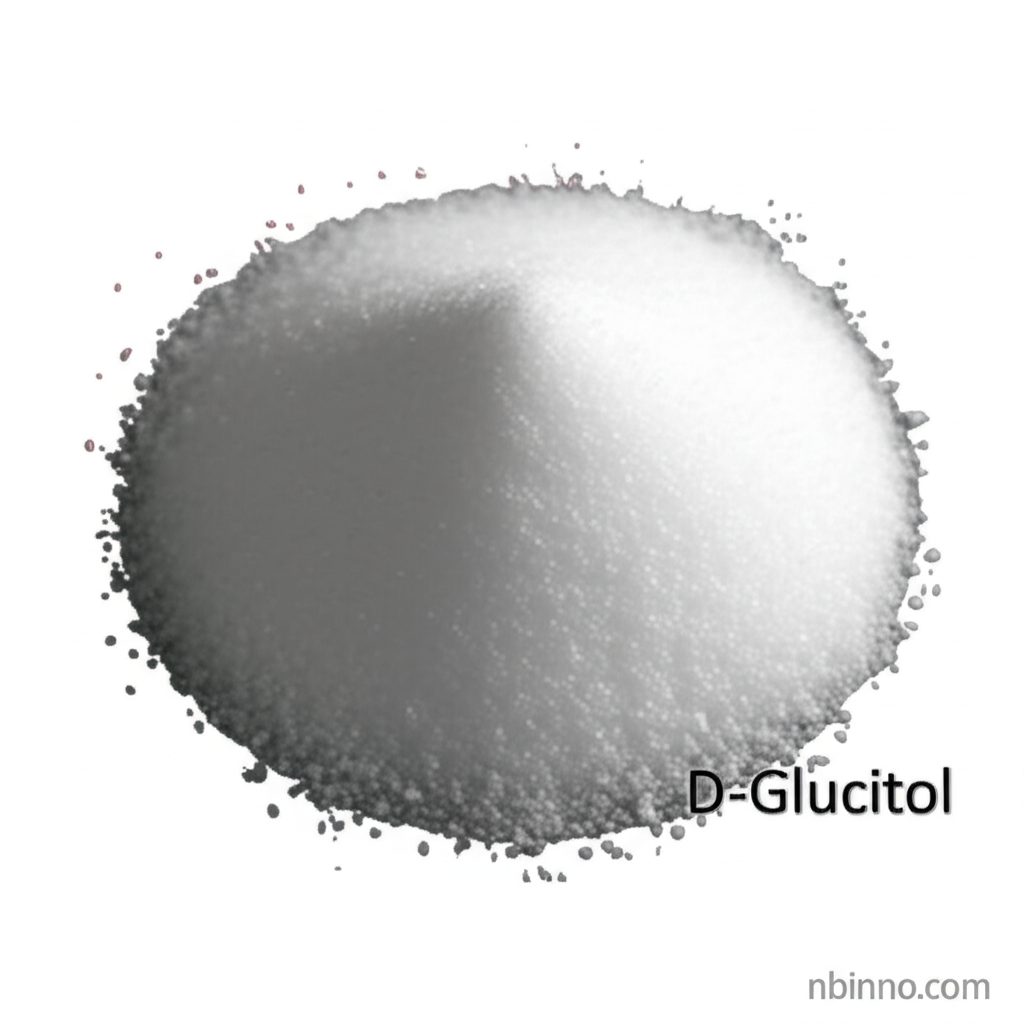D-Glucitol (Sorbitol) CAS 50-70-4: A Comprehensive Overview
Explore the multifaceted uses and chemical properties of this essential sugar alcohol.
Get a Quote & SampleProduct Core Value

D-Glucitol
D-Glucitol, commonly known as Sorbitol (CAS 50-70-4), is a sugar alcohol that serves numerous critical functions across various industries. Its unique chemical structure and properties make it an indispensable ingredient in food, pharmaceutical, cosmetic, and chemical applications. From enhancing texture and moisture retention in food products to acting as a key excipient in drug formulations, D-Glucitol offers a unique blend of sweetness and functionality with a lower caloric impact than traditional sugars.
- Leveraging its role as a key sweetener, D-Glucitol provides a pleasant, less intense sweetness compared to sucrose, making it ideal for sugar-free and reduced-calorie food products.
- As a potent humectant, it effectively retains moisture, thus extending the shelf-life and maintaining the freshness of baked goods, cosmetics, and other moisture-sensitive products.
- In the pharmaceutical industry, D-Glucitol is widely employed as a versatile excipient, acting as a diluent, stabilizer, and plasticizer in various dosage forms, including tablets, capsules, and liquid preparations.
- The chemical synthesis of D-Glucitol from glucose through reduction reactions highlights its role as a fundamental building block in chemical manufacturing processes.
Key Advantages
Reduced Glycemic Impact
One significant advantage of D-Glucitol is its slower absorption and metabolism in the body, leading to a reduced impact on blood sugar levels compared to conventional sugars. This makes it a valuable component for diabetic foods and low-carbohydrate formulations.
Enhanced Product Stability
Its hygroscopic nature and chemical stability contribute to improved product stability. D-Glucitol helps prevent crystallization and maintain texture, extending the shelf-life of many consumer goods, aligning with the need for consistent product quality.
Versatile Industrial Applications
The broad spectrum of uses, from its function as a sugar substitute in confectionery to its role in creating cosmetics and even in chemical manufacturing, underscores its versatility and economic importance in various supply chains.
Key Applications
Food Industry
D-Glucitol is a cornerstone in the food industry, serving as a sweetener, humectant, and texturizer in products ranging from sugar-free candies and baked goods to beverages, contributing to both taste and product longevity.
Pharmaceutical Sector
Its use as a pharmaceutical excipient is extensive, including in syrups, tablets, and capsules, where it aids in drug delivery, improves palatability, and enhances stability, a key aspect for reliable pharmaceutical preparations.
Cosmetics and Personal Care
In cosmetics, D-Glucitol functions as a moisturizing agent and thickener in products like toothpaste and lotions, enhancing skin feel and product formulation, supporting its role as a key cosmetic ingredient.
Chemical Manufacturing
Beyond consumer products, D-Glucitol is a precursor or intermediate in the synthesis of various chemicals, including ascorbic acid and plasticizers, showcasing its importance in broader chemical processes.
